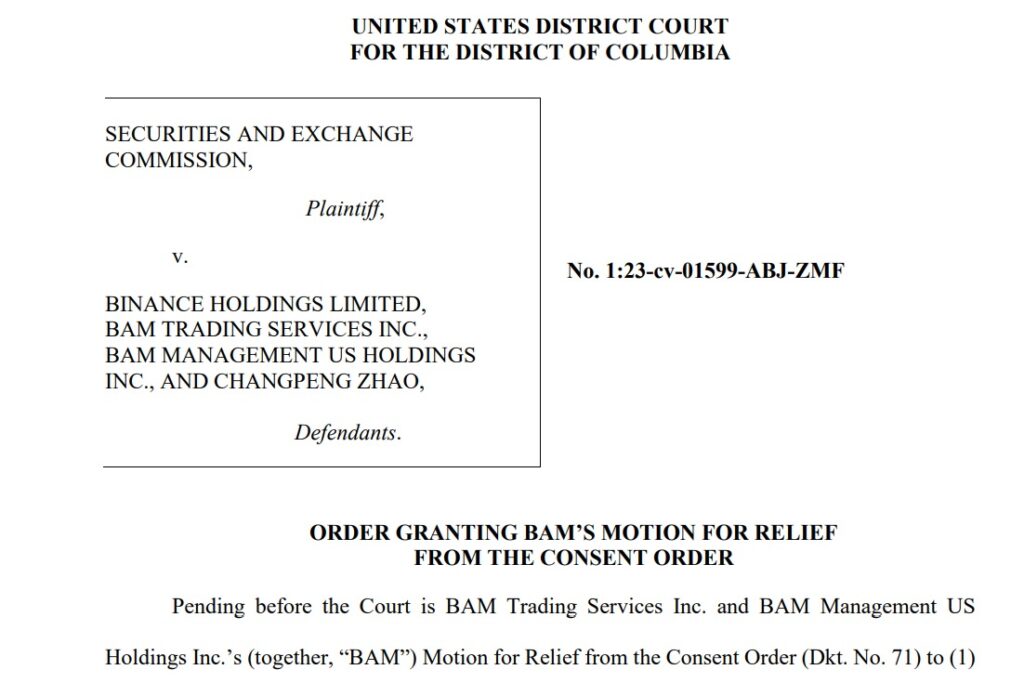- Binance to invest customer funds in U.S Treasury Bills
- A cloud of legal troubles still follows Binance globally
Despite BNB’s recent upswing and the exchange’s constant brush with the law, Binance has risen. In a significant turn of events, a District court in the District of Columbia, USA has allowed the exchange platform to invest in U.S. treasury bills.
A win for Binance?
According to a recent Court filing from the U. S. District Court for the District of Columbia, Binance can invests a specific amount of customer funds using a third-party investment manager. The filing explained that the firm must ensure all the investments must not get into the company or any related operations.
In detail, the court ruling stated,
“BAM” Motion for Relief from the Consent Order (Dkt. No. 71) to (1) engage third-party investment advisors to invest in BAM’s corporate assets; (2) invest certain customer assets in United States Treasury Bills; and (3) transfer crypto assets to a non-affiliated third-party custodian or custodian. Upon considering the Motion, the Court concludes that the Motion should be granted.”
However, the ruling also directed the company to ensure it has sufficient USD to ensure customers can withdraw as they please. Also, the firm has to provide monthly reports regarding operational costs. The Court added,
“BAM maintains sufficient USD on its platform to honor all expected customer fiat withdrawal requests, as estimated based on historical withdrawals, during the period in which BAM will be investing customer funds; and (iii) BAM amends its terms of use and provides notice to customers consistent with BAM’s Motion.”
Binance’s legal troubles
This is not Binance’s first rodeo with the law though. In fact, it has been under legal scrutiny for years now. Not just in the United States, but globally too.
For example, the firm pleaded guilty to criminal charges last year and agreed to pay $4.3 billion to the U.S. Department of Justice. This resulted in Changpeng Zhao’s resignation as CEO, with a jail term.
Additionally, Canada fined Binance $4.4 million on money laundering charges after failing to provide receipts for transactions over $10,000 on 5902 occasions. Similarly, a Binance executive was arrested in Nigeria in May, with a court ruling that he will face criminal charges.
As expected, Binance’s legal troubles have considerably impacted the firm’s operations and investors. For instance, its sustained non-compliance has resulted in firms’s lack of access to various markets, various restrictions on its operations, and reduced willingness from financial institutions and governments to engage or partner.
Equally, investors face adverse outcomes, such as increased KYC requirements to complete transactions, withdrawal disruptions, and increased scrutiny. Higher scrutiny by regulatory authorities affects the main aim of decentralized market systems and increases the government’s restrictions on the systems set to avoid excessive government bureaucracies.



